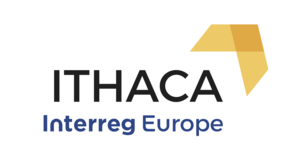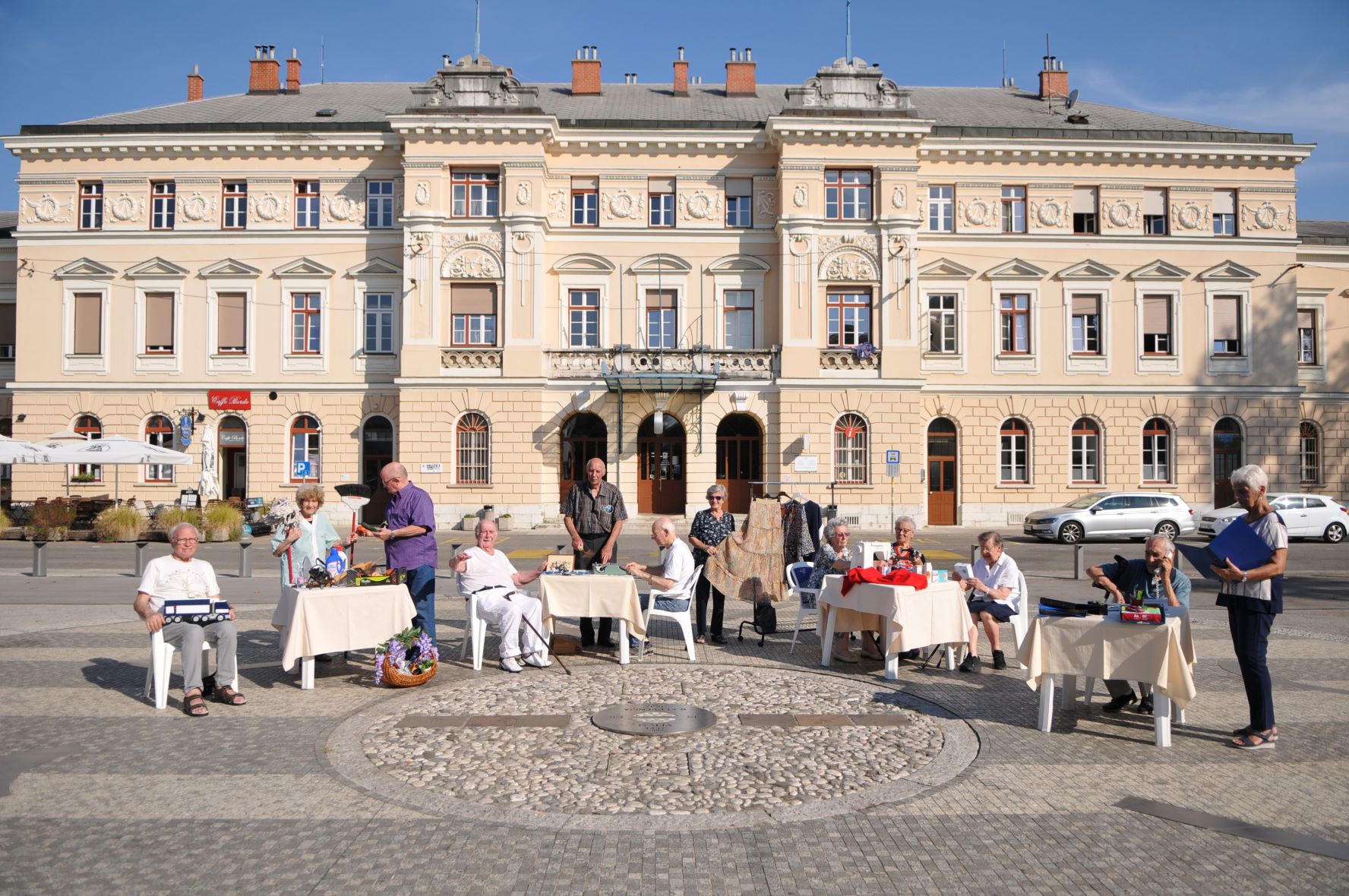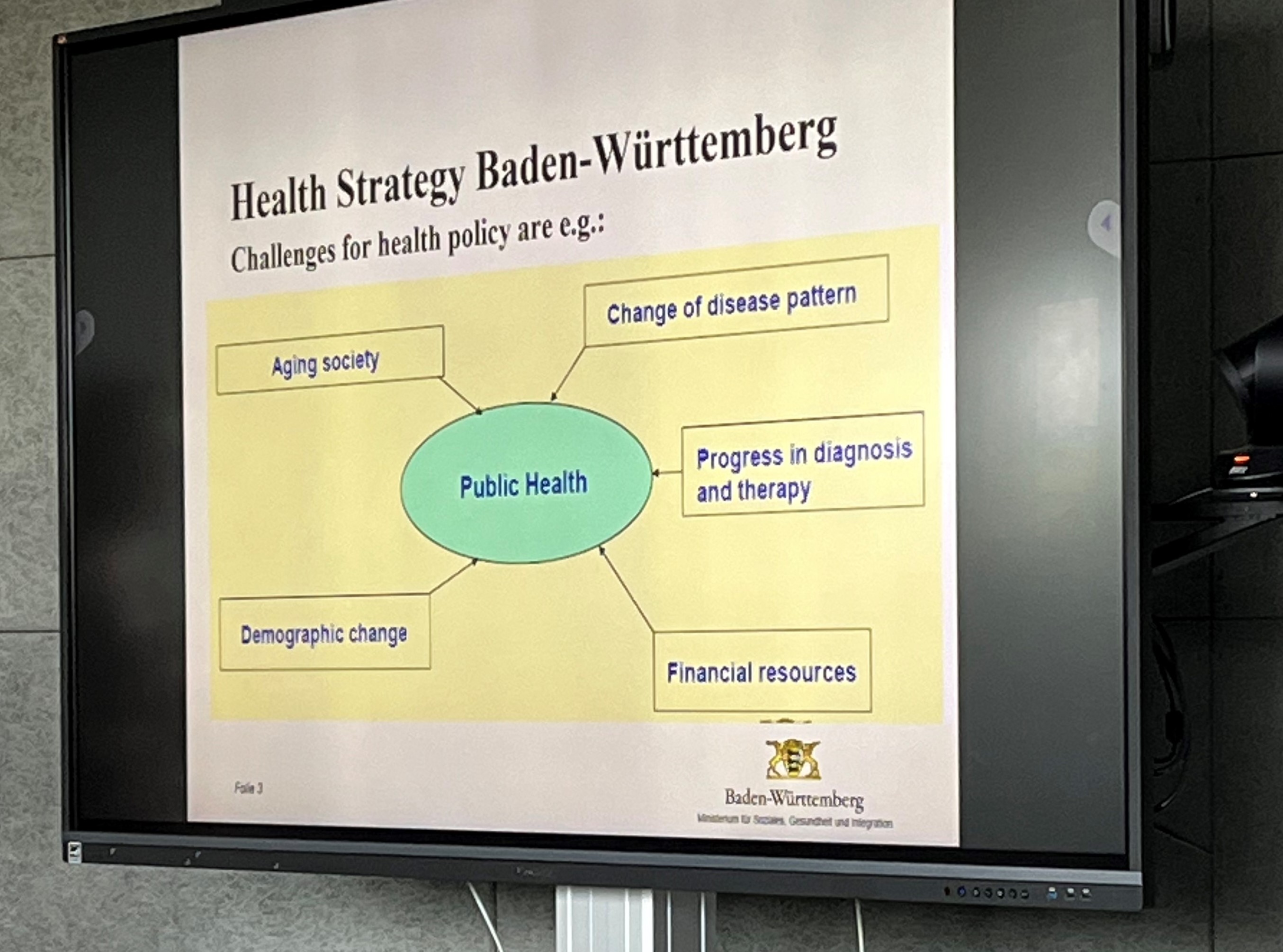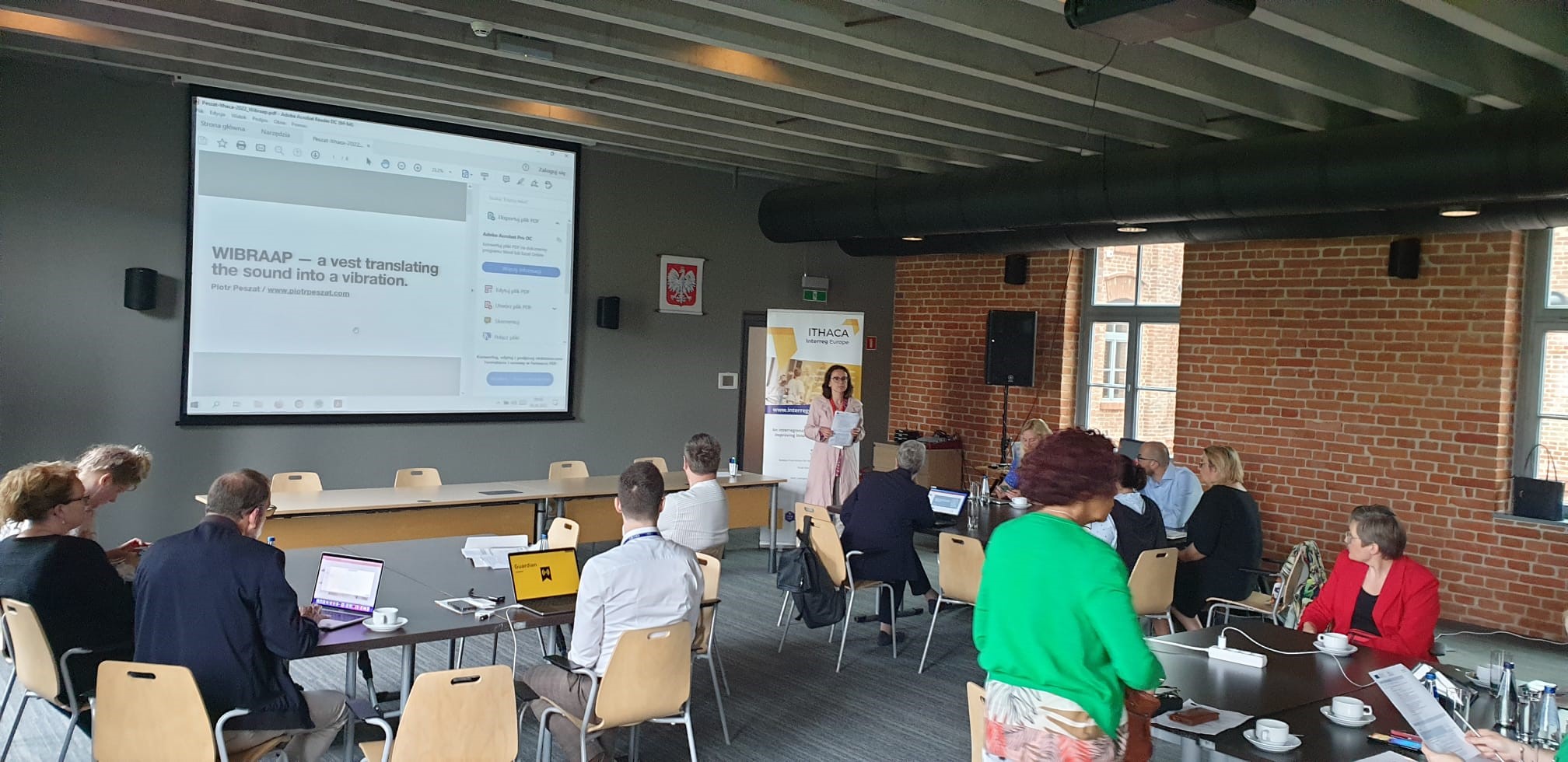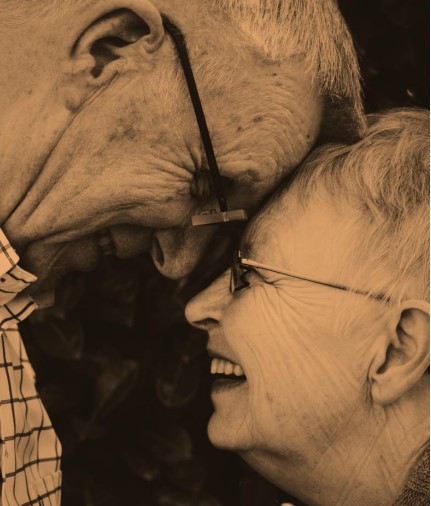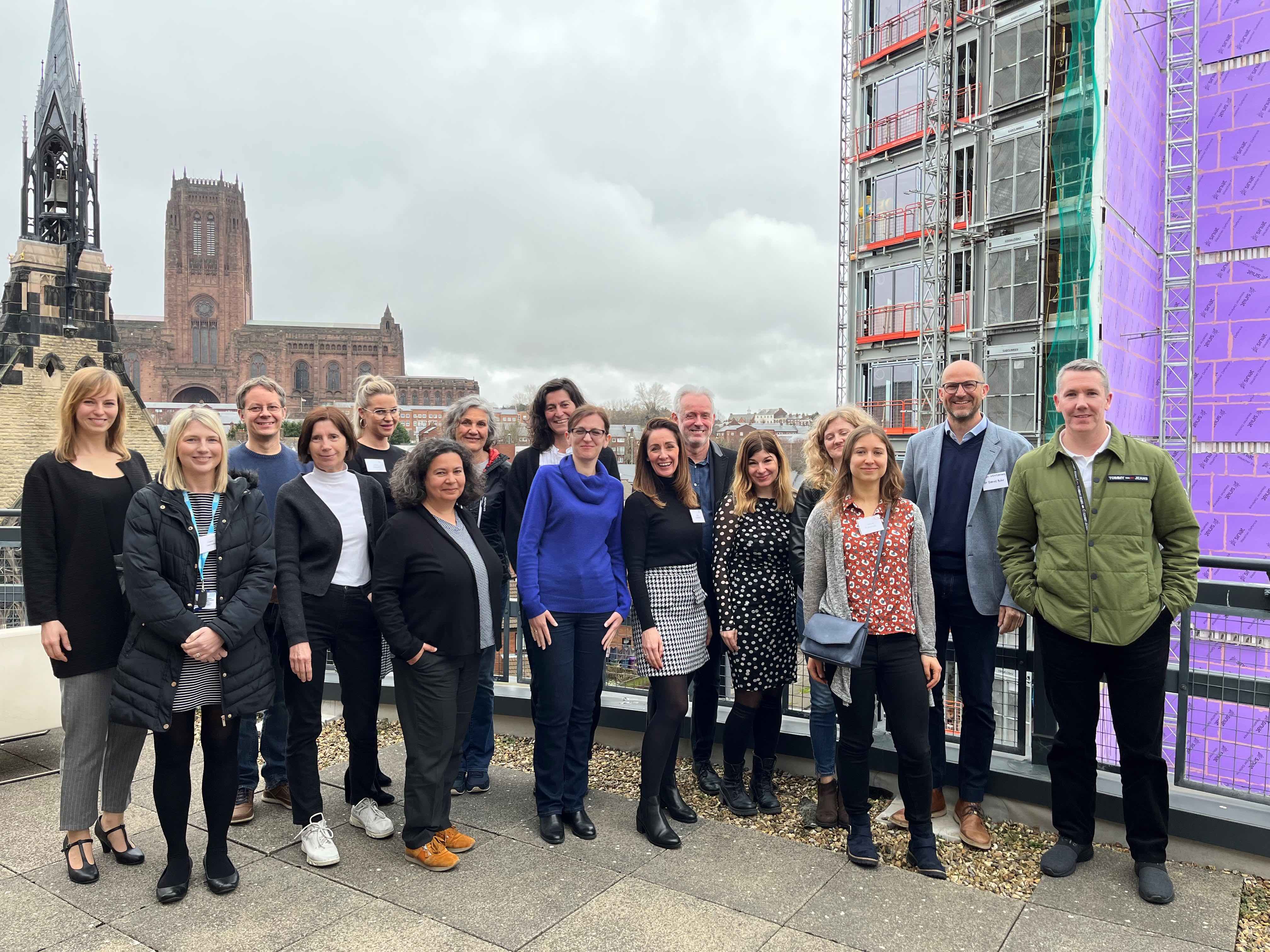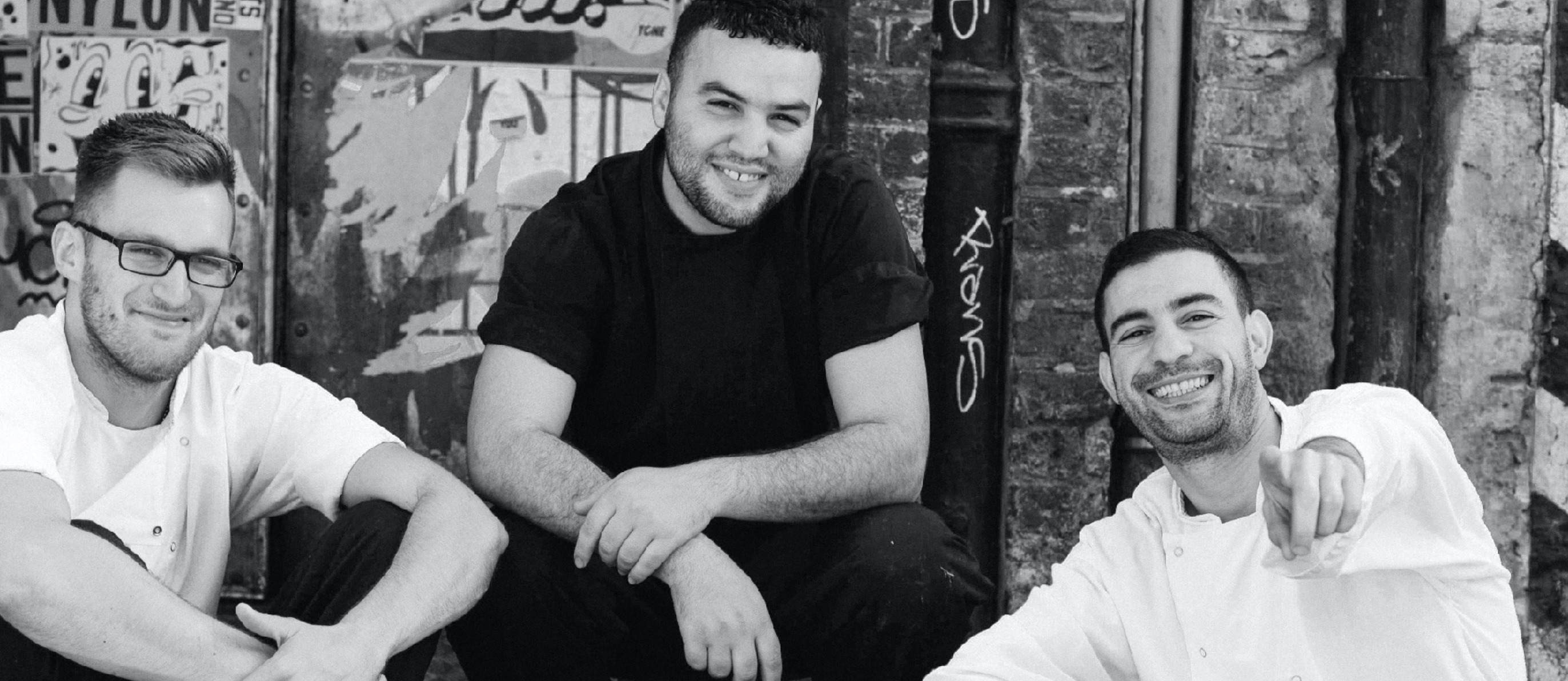The instructor raises his hand, counting down. Five seconds until we go live. Four. Everybody is in their seat. Three. Cameras are rolling. Two. All tweets are ready. One. The studio is silent.
“Welcome and thank you for joining the ITHACA journey. We will be looking back on the past years,” says mediator Rudy van Beurden.
These words mark the end of a journey. Five years ago partners from nine regions in Europe set out on a mission to adapt their health policy and find new solutions to support active and healthy ageing for the growing elderly population.
Sharing solutions the core of ITHACA
The Final Conference takes place on the beautiful conference hotel Eigentijdserf in Green Village near Eindhoven. It is a place for slowing down, getting in-depth talks, and reflecting. In this sense, it captures the entire essence of ITHACA.
“Sharing solutions and best practices are the core of the ITHACA project. New inspiration creates a dynamic within the systems that will at first benefit the health systems themselves because new ideas are brought up. That later benefits the end users,” says lead partner Astrid Kaag.
Supporting a new demography in any society is a difficult task. It requires new ways of carrying out health and care services, and that requires a new way of thinking solutions, knowledge transfer, and the role of the elderly.
Partner Marielle Swinkels from the Netherlands and John Webb from Liverpool City Region came up with the method called Exchange of Experience and Peer Evaluation, the EEPE, where each partner showed parts of their health system to inspire the rest and get feedback that could improve their own. This feedback was later used to formulate a regional action plan that could be implemented.
We are all in the same boat
In the forum that the EEPEs provided, ideas like a user centred approach, integration of sectors and implementation of telehealth and care-system, which is on the agenda in many countries, became tangible and connected to a practice or a project.
“There is a comfort in knowing that you are not alone with your problems. Everybody struggles with these issues. We are all in the same boat,” says Sandra Evans from Baden-Württemberg who describes her job as a professional matchmaker because she is responsible for connecting the right people with the right projects.
The main concern in most of the regional action plans was how to engage the end users, whether that was patients, care recipients, entrepreneurs, health professionals or informal carers. As the healthcare policies are different in each region ideas from one partner to the other had to be adapted. For this reason, many of the partners have stayed connected to share details about their practices.
Cooperation based on trust
Walking to the restaurant in Eigentijdserf it quickly becomes clear that ITHACA is very special for an EU project. When the meetings of the day are over, enthusiastic gestures and loud laughter, friendly teasing and personal stories are very common. This is one of the keys to ITHACA's success.
“There were a couple of people who showed that it is okay to be less formal. We are serious but we can talk about anything. I think it is very beneficial to the project because we trust each other and it makes it easy to ask each other for advice,” says Magdalena Klimczyk from the Malopolska Region.
As many regions have big distances that make it difficult to manage chronically ill patients, telemedicine is at the top of many wish lists. The close relationship meant that it was easy to form a smaller group within the project where the relevant partners only focused on sharing their experiences on the implementation of telemedicine.
However, it does not take a meeting for the partners to tell what issues they bumped into or to share advice. It will start in any conversation, because of the trust and the understanding of each other’s healthcare system.
As Erik Brander a consultant from Region Zealand puts it: “There is almost too much information for anyone to use.”
Teaching prepare healthcare for the future
The day after the hybrid studio event, for some it is time to return home. A journey full of discovery has come to an end. But for most, the voyage continues for another year. Experiences from Liverpool City Region showed that the teachings from ITHACA became relevant when a tiny virus and proved that no system is too big to fail.
To handle pandemics like the COVID19 in a world where people and goods are crossing borders, so must knowledge and best practices. Corona is not the first virus to put the world on hold nor will it be the last. It calls for the continuous development of solutions. This is where ITHACA has its strength because the foundation is already in place.
So, for the next year, the group will continue to share and implement best practices that were obtained during the pandemic to create more resilient healthcare systems fit to handle anything the future has in store.
